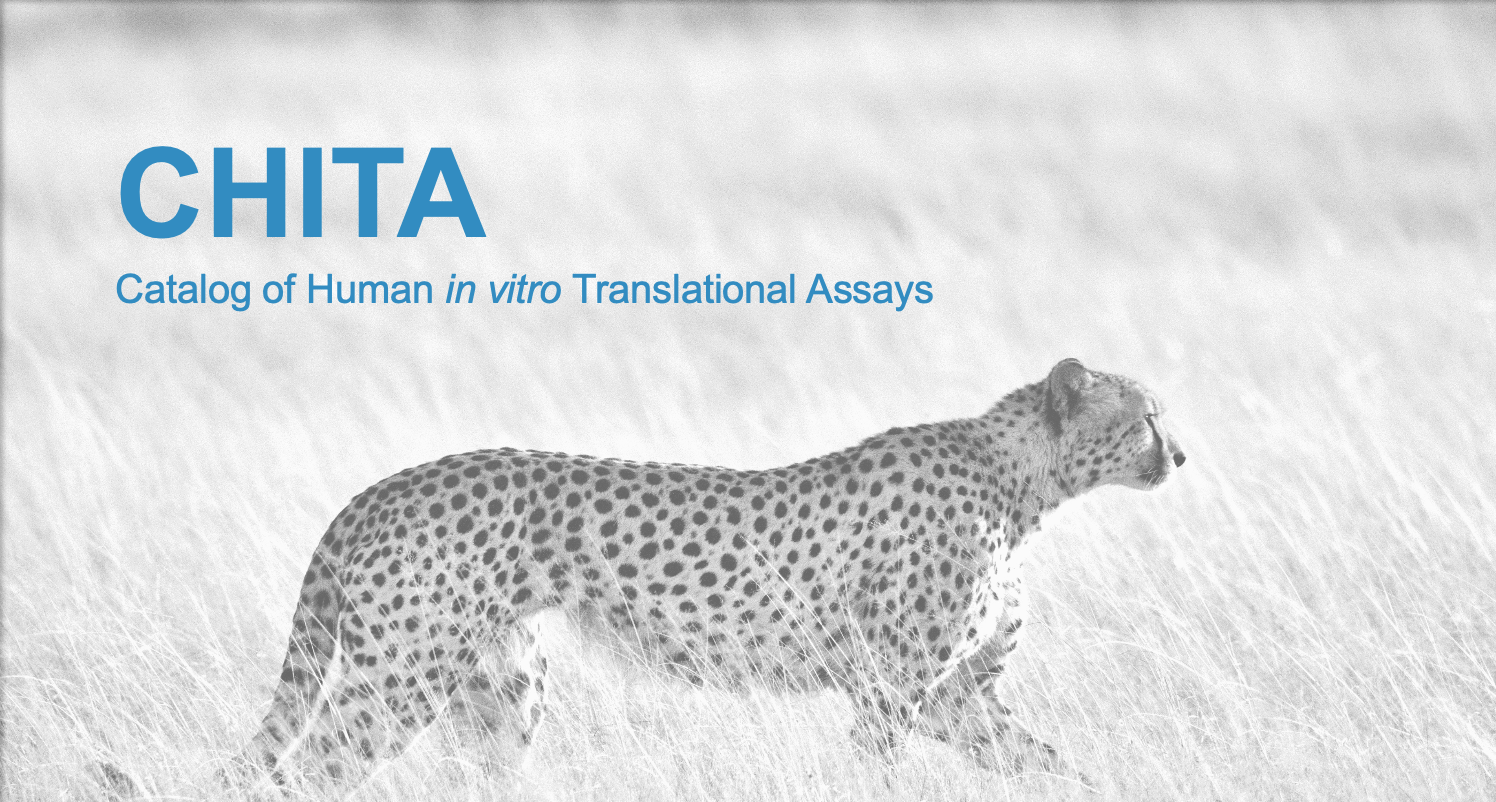CHITA – a registry of in vitro NAMs

If we want to replace animal testing in biomedical research, how do we find human-relevant alternatives?
It’s not that simple.
There are 1000s of human cell-based assays and systems that are potential alternatives, available from a large and fragmented ecosystem of assay developers and commercial vendors. These methods are complicated, constructed with seemingly infinite combinations of cell types, culture conditions, technical configurations, and measured endpoints.
Sometimes referred to as in vitro NAMs (New Approach Methodologies, see also here for some good discussion about terminology conflicts), these human-relevant alternatives include traditional two-dimensional (2D) cell cultures, co-cultures, 3D cultures, spheroids, organoids, tissue slice assays, as well as microphysiological systems (MPS), organ chips, or Complex In Vitro Models (CIVM).
For biomedical researchers, the performance of a method in response to a key control (e.g., known reference drug or chemical) is one of the most important factors. And yet, these data are hard to find, often buried in supplemental figures in publications. Standards for performance characterization, including reproducibility metrics, are not consistently reported.
To help biomedical researchers find and gain confidence in using these platforms, we are creating an open-access, curated registry and data portal through the CHITA project (Catalog of Human In Vitro Translational Assays)
The CHITA project aims to include standardized and scaled platforms, typically available through commercial service providers and core laboratories. These include assays and methods that may or may not be validated for regulatory decisions but represent likely candidates for inclusion in combinatorial NAMs approaches or incorporation into future AI-based reasoning systems.
By unifying and standardizing assay metadata and key performance characterization data in a user-friendly database portal, search, and visualization tool, the project aims to improve the visibility of these platforms to potential users.
We support the FAIR principles for data (see here and here) and as an open science project, project updates and documents will be posted on the Center for Open Science’s Open Science Framework portal here.
Many thanks to our initial collaborators, Emulate, Eurofins Discovery, PhenoVista Biosciences, and Collaborative Drug Discovery, as well as the Data FAIRy Bioassay Annotation, In Vitro Pharmacology and In Vitro NAM Data Standards(new!) project teams at the Pistoia Alliance.
We will be looking for feedback on our data model and search fields. If you work in preclinical research or translational research and would like to give input or see early demos, contact us.
Photo by Catherine Merlin on Unsplash







